People become pregnant at many different ages and stages of life. Everyone is different; everyone faces different circumstances and wants different things. What to do next may or may not be an easy decision for you.
If you are pregnant, you do have options:
- you can continue the pregnancy and become a parent.
- you can continue the pregnancy and arrange for adoption.
- you can have an abortion (a safe and legal way to end a pregnancy)
Only you can decide which is the best option for you. Some people feel sure about what they wish to do. Others may have mixed feelings about being pregnant and about the choices available to them and so, making a decision can feel difficult. You may find it helpful to talk with someone you trust (a friend, family member, elder, counsellor, nurse or teacher).
If you have questions about your options, call Action Canada for Sexual Health and Rights: 1-888-642-2723 (24 hours a day, 7 days a week).
If you decide to continue the pregnancy, one way to have a healthy baby is to take good care of your own health. Make an appointment to see a healthcare provider about prenatal care and support. If you feel nervous or feel like you would like more support during your appointment you are allowed to bring a friend, family or community member with you to your appointment. This might be a good way to help you feel more comfortable asking questions and may help you remember what was said during the appointment.
Whether you decide to raise the baby or arrange an adoption, prenatal care is important for your health and the baby’s health. A healthcare provider might ask questions and may run some tests. They will help you plan for the baby’s birth and your travel, if needed.
To make sure your body is healthy; they may do blood tests, urine tests, and tests for STIs. They may talk to you about:
- Diet and exercise,
- What food, activities and substances they recommend avoiding.
- They might also encourage you to take prenatal vitamins.
Your doctor or nurse may inform you about what changes you can expect: physically, mentally and emotionally, as you go through pregnancy. They can help you know what to look out for. For example, there could be signs of prenatal depression or physical symptoms you should tell your healthcare provider about.
You see your nurse regularly throughout your pregnancy. They need to keep track of your health and the baby’s health. If you have questions or concerns, don’t be afraid to ask them—they are there to help you.
Smoking, drinking alcohol, and using drugs can harm an unborn baby. If you get pregnant, it is important to stop using or cut down if you can. If you need help, talk to a nurse at your local health centre.
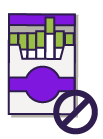
Tobacco
Cigarette smoke makes it harder for unborn babies to grow properly, and increases the risk of miscarriage. You can try to cut down or quit smoking, and try to avoid people who smoke around you, so the baby can:
- Be born at the right time—not too early
- Have a healthy birth weight—not too small
- Have lower risk of sudden infant death syndrome (SIDS)
- Have lower risk of breathing problems
- Have lower risk of ear infections.
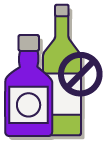
Alcohol
It is safest not to use any alcohol while pregnant. Unborn babies exposed to alcohol are at risk for Fetal Alcohol Spectrum Disorder [FASD].
FASD is a term that describes a range of effects that a baby may experience if a pregnant person drinks alcohol during pregnancy. These effects may include physical, mental, behavioural, and/or learning disabilities.
It can be hard, but many people are able to stop or reduce their substance use when they find out they are pregnant. If you are unable to quit completely, try to lower the amount that you use each day. Talk to a friend, family member, or health care professional that you trust if you are considering stopping or cutting down on drinking and need support.
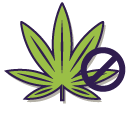
Cannabis
It is safest for pregnant and people that are breast-feeding to avoid cannabis use. There is no known safe amount of cannabis to use during pregnancy. Cannabis use during pregnancy may cause the baby to be born small and may cause the child to have problems with memory, attention, problem solving, and behaviour
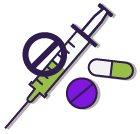
Drugs
Tell your health care provider about any medication you take and how often because some drugs and supplements can harm unborn babies. Some drugs can harm babies after birth, through breast milk.
- Illegal drugs—heroine, marijuana (cannabis), cocaine, meth, etc.
- Legal and prescription drugs,
- Herbal supplements and vitamins
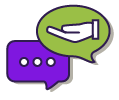
Support
Some people who use alcohol, tobacco, and drugs have a hard time stopping.
If you or someone you know has trouble quitting or wishes to cut down on: smoking, drinking or drugs, there is help and support. Talk to your health care provider, mental health nurse, or social worker.
You can also contact:
- Kamatsiaqtut Help Line (867-979-3333)
- Alcoholics Anonymous
- Al-Anon
- Tobacco Has No Place Here (nuquits.ca or 1-866-368-7848).
- If you live in Nunavik, click here.

 Learn more
Learn more